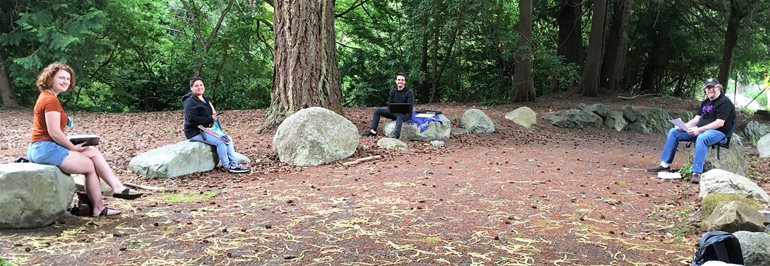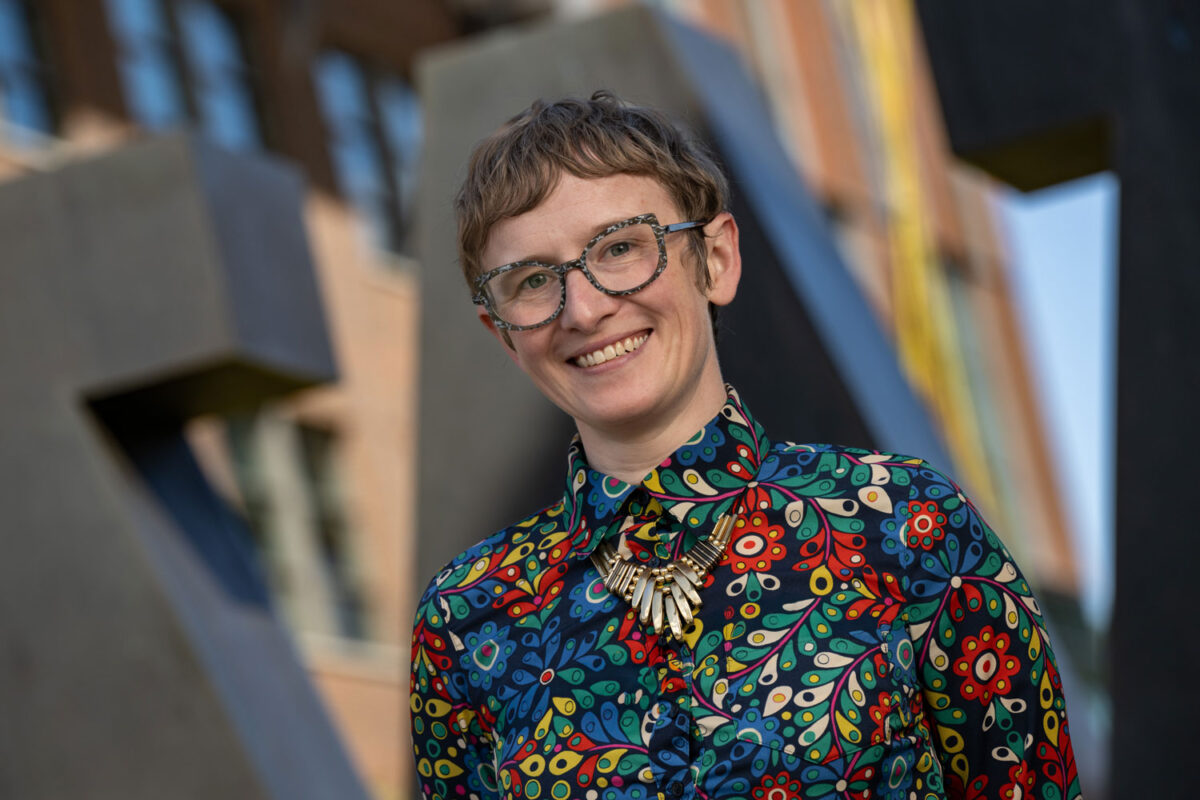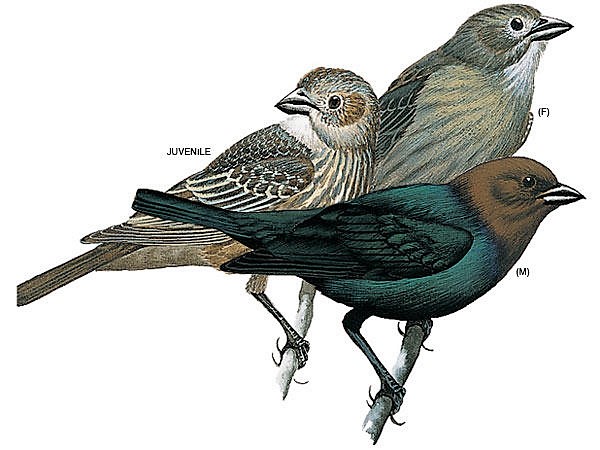
By Douglas Esser
A stealthy home intrusion took place over the summer on the leafy outskirts of Seattle. One mother went into another mother’s house, installed her own offspring and so tricked the put-upon host mother into feeding the intruding mother’s big, loud, demanding progeny.
University of Washington Bothell Assistant Professor Douglas Wacker had heard of such conduct before. In fact, he has taught about the brown-headed cowbird (Molothrus ater) in his animal behavior courses. But he never saw the parasitic action until this summer, as he launched a study of birds in Lake Forest Park, in comparison with other sites in the region.
The cowbird lays its egg in another bird’s nest. The cowbird chick has evolved to hatch first and push the other eggs out of the nest, Wacker said. Then it begs for food, and the host mother responds instinctively to the cries and open mouth. Thus, the host feeds the baby chick that has destroyed her own eggs.
“We got to see the cowbird, figure out what it was — based on a number of cues, including its vocalizations — and then we see this little host bird feeding it and figure out what species that was, too,” Wacker said. “That was pretty cool.”
Growing from a seed grant
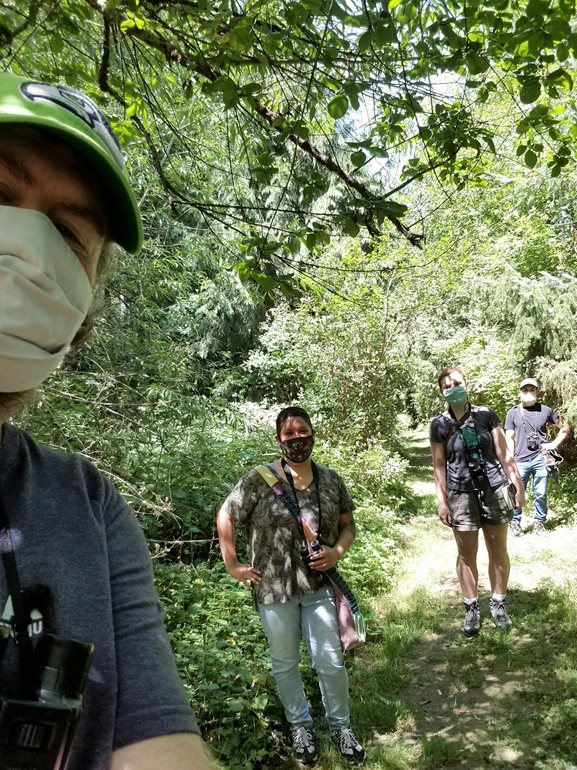
The cowbird drama took place in Cottonwood Forest, near Snoqualmie, one of the places used for comparison to parks in Lake Forest Park. As a resident and board member of the Lake Forest Park Stewardship Foundation, Wacker wanted to extend his biology expertise to his community. The project’s goal is to learn how habitat and urbanization impact the way birds use urban and suburban parks.
The project was started with a seed grant, officially known as the UW Bothell Scholarship, Research, and Creative Practice Seed Grant. The funding program was launched earlier this year under the leadership of Vice Chancellor for Academic Affairs Sharon A. Jones.
The program supports faculty projects that have potential to merit additional UW or external funding. A total of $284,000 through 15 grants was awarded. Wacker received about $25,000 and was able to hire three undergraduate researchers. Kira Lemke and Alex Moseley heard about the job in Wacker’s classes. Andrea Castro contacted Wacker for the work, which will apply to a capstone project. The Lake Forest Park Stewardship Foundation added $3,000 to support the research.
A boatload of species
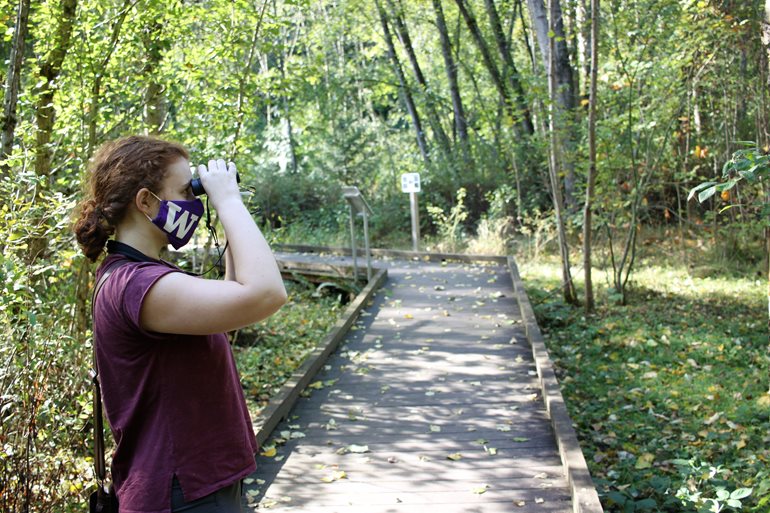
Through the pandemic this summer, Wacker and the students wore masks and maintained physical distances while working in the parks three or four days a week. They worked from home the rest of the time or when air quality was unhealthy, and they hope to continue the work through this academic year.
With training to use binoculars, recognize species or look up new ones, the student researchers identified 53 species of birds in Lake Forest Park. This included hummingbirds, woodpeckers, juncos, crows and killdeer plus a heron and a great horned owl.
“The students have been great at learning a whole boatload of bird species by sight and sound,” said Wacker.
He plans a longitudinal study over several years, with researchers making site-specific bird counts in Lake Forest Park. Then they’ll compare that with other locations to get an idea if the habitat is healthy. The information should help the city in making management decisions.
The secret lives of birds
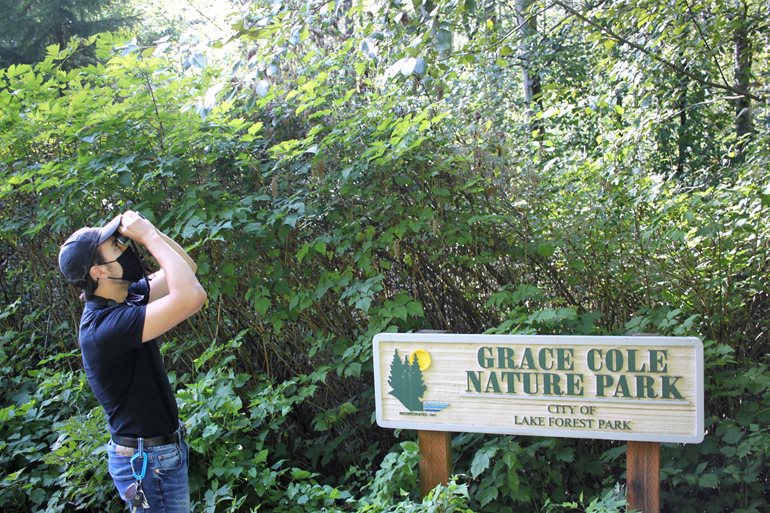
Moseley, a senior majoring in Biology with a minor in Neuroscience, is interested in wildlife biology but wasn’t a bird watcher before this summer.
“I enjoy thinking and talking about biology, especially evolutionary biology, so looking at things in the field — where the actual biology is, not just the textbook — was a really good experience,” he said. “And I got a new hobby out of it.”
Moseley noticed different species have their own demeanor. Even between two species of chickadee, one seems a little more timid and the other a little more brash, he said.
In Lake Forest Park, Moseley expected to see 10 to 15 species of birds and was surprised to find four or five times as many. It made him think about other parts of the world where there is even more diversity of animal life. He also learned how much work and preparation goes into a scientific experiment, which might sound to the uninitiated as simple as counting birds. “That’s an important thing to have learned first-hand,” he said.
A diversity of behaviors
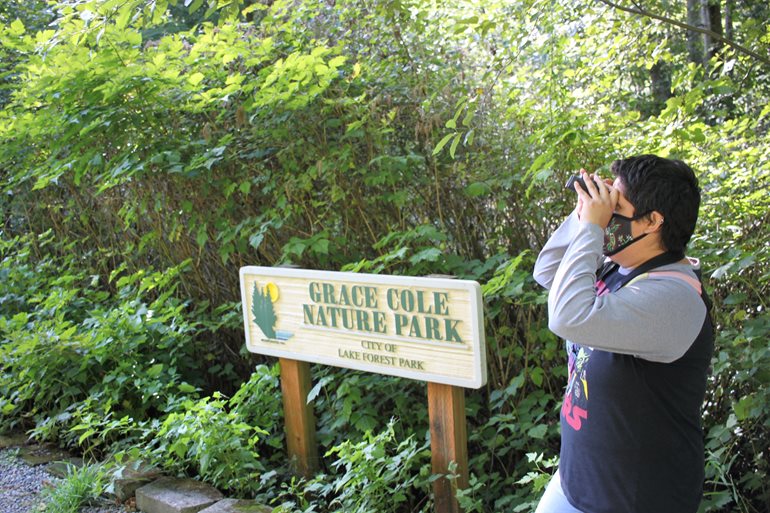
Castro, a senior majoring in Education Studies with a minor in Ecological Restoration, wanted to do a capstone project related to the minor. As a volunteer at the Woodland Park Zoo in Seattle, Castro spends time around tropical birds and had the preconception that Lake Forest Park birds weren’t as interesting. “But I’ve been excited to see that they’re unique in their own ways, and I have a new appreciation for that.”
Lemke, a Biology major with a minor in Marine Biology, is working to graduate in 2023. Her plan is to have a career as a researcher investigating the lives of octopuses and other cephalopods. Watching birds in Lake Forest Park, she discovered diversity within these species and surprising behaviors.
“I realized through this project how many different calls one species makes,” Lemke said. “Different species also have different vibes. I didn’t realize hummingbirds were so aggressive. They look so cute, but they’re very territorial. I had no idea before this.”
The observation, analysis and other research skills these students are learning are all transferable, Wacker emphasizes.
“If they go on to do work on cephalopods down the road, learning how to do research is really important,” he said. “We here in UW Bothell’s Division of Biological Sciences like to offer our students hands-on research opportunities so when they leave, they know what doing biology is really like.”
